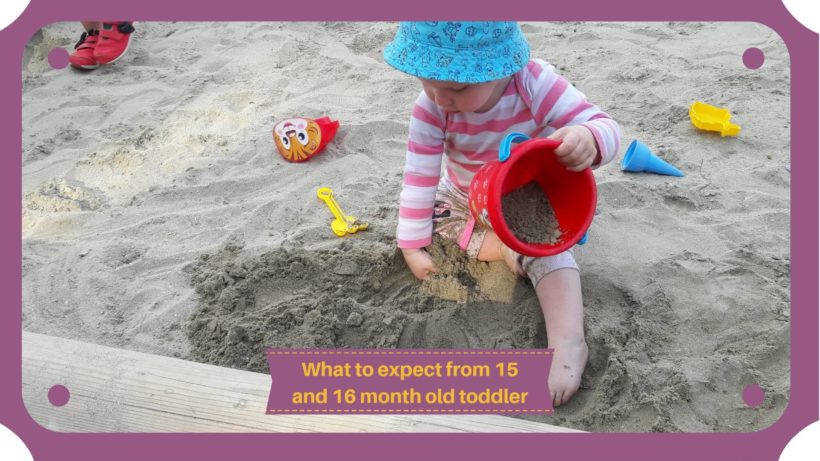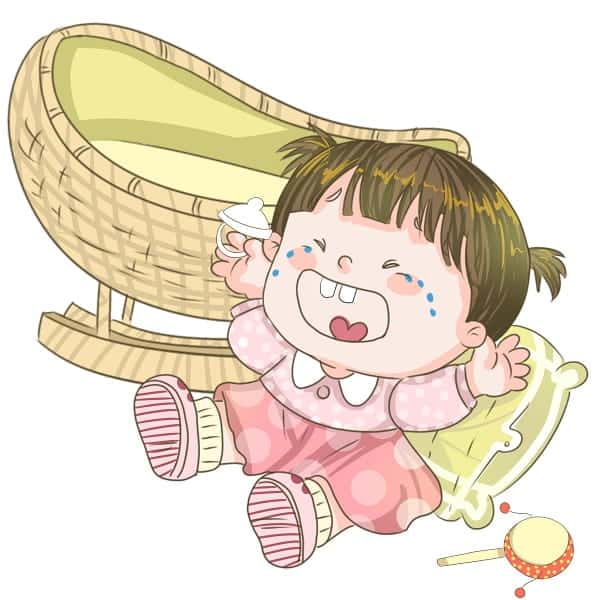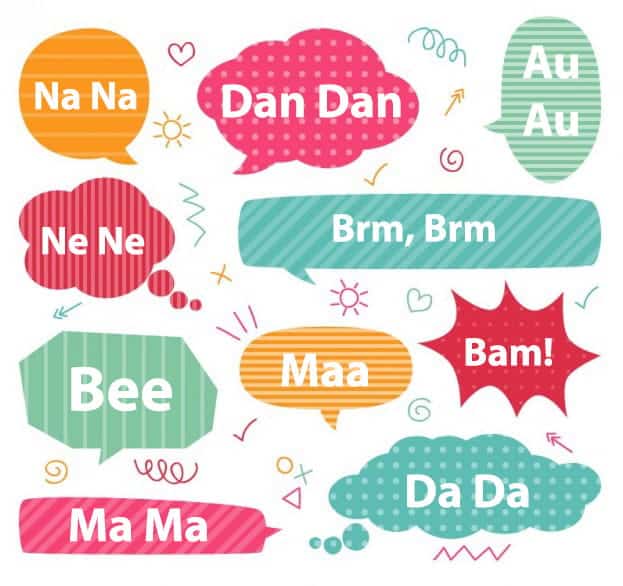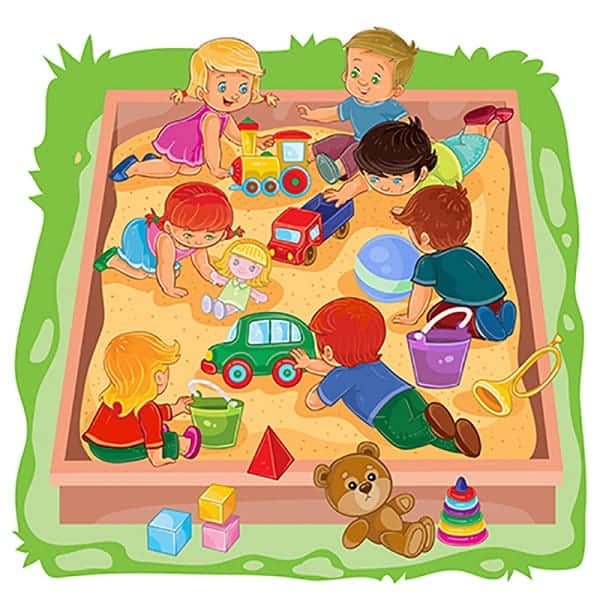Our expectations from toddlers should be more predictable by now, right? Wrong! We are still in a dynamic stage. With wonder week and teething yet again, fifteen and sixteen month old baby brings a lot more surprises. Especially on communication and emotional plan. So let’s dig in and explore together.
Article Contents
1. Wonders of a wonder week – part “who counts anymore”2. Words, of which some have a meaning!
3. New favorite thing – Sandbox
4. Fashion sense and pickiness
5. I finally like to hug my Plush Toys
In this article, we will talk about the fifteenth and sixteenth month of a child’s life. If you want to start on earlier stages and read about the first year, you can find all the months in the first year of a child’s life section. If you’re just starting with parenthood, or if you’re preparing to become a parent you should start with the first month of the newborn’s life.
Wonders of a wonder week – part “who counts anymore”
Did you think wonder weeks are over? No, in fact, even in adulthood we go through some phases which resemble them. Or at least we can use it as an excuse for that unproductive week full of crying and crankiness. But sadly we don’t come out with new upgraded skills as our little ones do.
So this wonder week is number 9 and it’s called The world of principles. Ominous. It occurs around 64 weeks of age or translated 14.8 months. What can you expect? The way we notice wonder weeks is by sudden sleep issues.
L. is usually a good sleeper with a pretty stable schedule, but during the wonder week, she has trouble falling asleep and wakes frequently. This time there was another development – she wanted both mama and dada in the room with her while going to bed or there would be hell. That lasted a few days but was pretty intense. Yet another short-term thing was protesting loudly if dada takes anything that belongs to mama, like a phone or a water bottle. No, no and no! Interestingly, other way around didn’t upset her. Then there were a few days of refusing to go to the bath. Suffice to say, wonder weeks are the real test of your patience.
But we find that it’s much, much easier to cope with all this if you understand that this is normal. Your child is okay, you are okay. Nothing you did, just a phase which is a precursor to new, better things. And what are those?
More words, more understanding, and more emotions. Beginning of a role-play and imitation, experimenting with yes and no, and many more. There are some less nice, but still important skills like pickiness and expressing their wishes and demands. You could notice even some aggressiveness. This is the period when your little baby starts to understand that they are their own person and not the mum’s extension. They have feelings, wishes, and desires! They can do stuff by themselves! Yes, nobody said toddlerhood is easy.
Tantrums continue, of course, and probably stronger than before. They are especially likely when the child is tired, hungry or overstimulated so it’s a good idea to avoid those conditions. Tantrums are mostly about communication and anticipation. The child wants to show or tell us something and we do something different or ignore them. How frustrating! Their way of thinking is still very rigid. They want us to do this specific thing in a very, very specific way – any wrong step may trigger such anger and sadness.
And it may seem silly to us, but in those little heads, this matters. It is important. Never make fun of your child’s feelings even if you perceive it as “not the reason for crying”. Don’t try to explain why something is impossible with lots of complicated words. Instead, try to understand how they feel. Say “Show me how to put this block inside of the bucket”. Or do something completely silly and unexpected like put the block over the eye and claim that’s the eye patch and you are the mighty pirate “No-beard”. Bask in their laughter. Starting to perceive humor is one of the better things in this period.
Words, of which some have a meaning!
Our little girl was always a talker. She says quite a few words with meaning. Truth be told, some of them only we understand. Banana is nana, the bear is bo, the whale is vi, meat is me. Onomatopoeia is still going strong, hu-hu is an owl, uu-aa is a monkey, ma is a cat, mu is a cow, glu-glu is a drink, brm-brm is a car/stroller. Recently she started to say yes and no (more often!) and with that, we already have some pretty interesting conversations. She understands even more. Recognizes almost all common animals, body parts and food.
One advanced concept she recently picked up is differentiating between mine and yours. Showing body parts (my nose, your hand, my shoulder, your eye) is a super fun activity, especially before going to sleep.
Language acquisition, like any other milestone, is so individual and it’s not important if your child is saying 3, 5 or 10 words. Comparing is really unproductive, but as we are all aware, hard to avoid. So, let’s talk about some things we do that we think really help with boosting language skills.
Reading a lot. And by that, I mean really a lot. L. already owns more than 20 books and goes through them every single day. We often go to the library and borrow some new books. It’s so fun to explore the library and to admire vast quantities of books. Love for books is cultivated, so you should model that behavior, or bring your child in the company of the people that do. She mostly goes through the books with us, showing different stuff in the book and naming them or asking us to name them. But she is in the mood for following the whole story now and then. At least two stories are our bedtime ritual.
Talking and listening. Narrate stuff you do and plan to do to your child. “Now we will have breakfast, then change the diaper and dress and then… Go out! “Describe what are they doing and seeing. Interaction is key to language acquisition. Ask and wait for an answer. “Are you done with eating? Want to drink water?” Be dramatic and silly! I notice my sense of shame greatly diminished since I became a mother. Singing and dancing on the street? No problem! And the truth is, nobody cares. Also, give choices to your child. “Do you want to put on this suit with a blue ship or this suit with the little cat?” They will understand how things differ and that they have some options. That will actually go a long way in lessening tantrums.
Receive and expand. One of the known methods for language acquisition is to repeat what the child said and to add a little extra. For example, if they see a bird and say “Bi!”, you say “Oh, yes, a bird is flying in the sky! How is the bird flying?” And then you wait for them to flap their hands. Communication!
No (much?) screens. This is a controversial topic. Some parents swear how children learned lots of things by watching television. Quite a lot of research shows it actually has pretty negative effects. Lower vocabulary, imagination, focus, and concentration, not to mention underdeveloped motor skills. Children younger than 18 months have no benefits of watching television. Is it actively harmful? Probably not, research is mostly correlational. I would call it an opportunity cost.
There are so many better and more valuable things to do than passively watching television. Or even using all those “educational” apps. There is a time and place for them of course, but not yet. We talked a lot already about sensorimotor development and one of the main characteristics of this period is rapid and multimodal learning. Touching, feeling, licking, smelling – those are the main methods of learning in this age and should be utilized to the maximum. Nothing terrible would happen if a child uses screens now and then, but we decided not to use them at least until L. is 18 months old.
New favorite thing – Sandbox
You probably already noticed how fast your child changes preferences towards certain activities. We are in the same boat here. We already talked about playgrounds and sliders in 13 and 14 months old article. She was crazy about sliders! She still likes them, but there is a new favorite activity now – sandbox!
I think we could spend a whole day in the sandbox and we are getting a bit sick of the sandbox, to be frank. But she loves them! When she discovered them, with 15 months, she was reluctant. That new texture, careful exploration, should I touch it or not. But soon after, she is all over sand (and sand is all over her). Sometimes we feel we brought half of that sandbox with us home.
She is putting her hands deep, burying her legs, filling her bodysuit with sand. Thank god she stopped eating it, but that was also a phase. And all those toys! She has her toys for a sandbox that she learned to pack when we are going out and knows which toys go with us home. But the best part is other children and their toys.
You can really observe children’s interactions and their personality. We talked about the parallel play and it still boils to that. Little ones will sit next to each other and do their own thing. But how they behave is interesting to watch and gives us, parents, some teaching opportunities. Some children will just take what they want, even from another child’s hand. Some will avoid getting close to other children while others will have big reactions if they can’t get what they want.
Our little one usually acts sneaky. She will scan her surroundings, slowly, nonchalantly approach the toy of her interest. And then grab it and start to play with it (she likes to stockpile all buckets in the sandbox)! At least she is reasonable and returns stuff if we ask her to get it back to the rightful owner.
And that is the opportunity for teaching. It is normal that kids will take other children’s stuff, there will be conflicts and frustrations. But that is something that will happen throughout life. Most of the time, children will learn from each other, like: If I take someone’s stuff, he will get mad. Others will take my stuff as I’m taking their stuff, etc.
But we as parents can also point them in the right direction. Tell them that it is not OK to take what’s not ours without asking and we should be returning the toys after “borrowing” them. And that is commendable if we let other children play with our toys. But it should never be a rule that they must give their toys to others. They are theirs and they should decide if they want to share them. However, we can remind them of some social expectations and norms, what’s polite and what they can expect from the others.
It’s not like they will understand it fully at this age, but it is a precursor for future behavior and an important step in learning how to interact with others in a proper way.
Fashion sense and pickiness
Another “great” trait surfaced! Suddenly, our 16-month-old daughter developed a fashion sense! We can’t say is it because she is a girl or parents with boys go through the same phase. I bet they do since I was kidding when I said fashion sense. It’s definitely more of a pickiness.
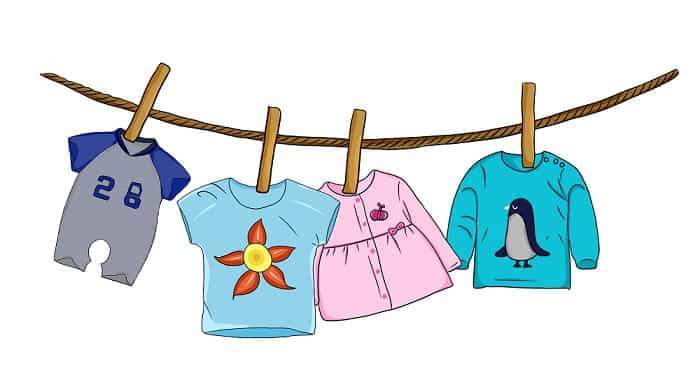
Gone are the days when we could grab first pants from the closet, now she won’t wear it! She has her favorites and when they are on washing (and she likes to spill yogurt all over her) we are in some trouble. She has her favorite sleeping suit with a car and every night when we are dressing for bed she goes like “brm brm!” And if “brm brm” is not usable, we have yet another tantrum before regular “sleep time” tantrum.
But we are grown-ups and more clever than a 16-month-old right? Let’s roll with that. And we managed to develop some strategies in coping with that challenge. Now when we need to pick what we want her to ware, we go super, and I mean super excited about that piece of cloth. Showing flowers, commenting hearts, bunnies, anything we can see on that shirt/dress/pants. We approach it like it’s the prettiest piece of cloth in the universe and (sometimes) it works! She agrees without protesting to wear it. Even a dog (she loves dogs) on etiquette can do a trick if we point it out.
Another proven strategy is to present her with two choices and let her pick what she prefers. Giving choices to toddlers is crucial because it plays well with their newfound need for independence. Letting them pick their outfit is one of the simplest ways to empower them. What they ware is not really that important, but it means the world to them. It’s best to limit to just a few options though to prevent getting overwhelmed.
So there you go. We hope you won’t have those fashion problems. But if you do, try to be enthusiastic about the clothes and give them some choices in picking. And you will see, it can do wonders.
I finally like to hug my Plush Toys
I bet you also have a full house of plushies. Yes, a favorite gift from every grown up to a 1+ year old child. We also have them a lot and until recently, their main role was collecting dust. But with fifteen months, our little girl started to show more affection towards them.
Frankly, she’s not super into them but her 3 favorites found the place in the bed with her. And almost every night, before sleeping, “Dada” needs to give a kiss to her plushies too! Also, from time to time she likes to hug them and loves when they dance! Of course, “Mama” or “Dada” need to make the plushies dance, she is just a spectator with a smile on her face.
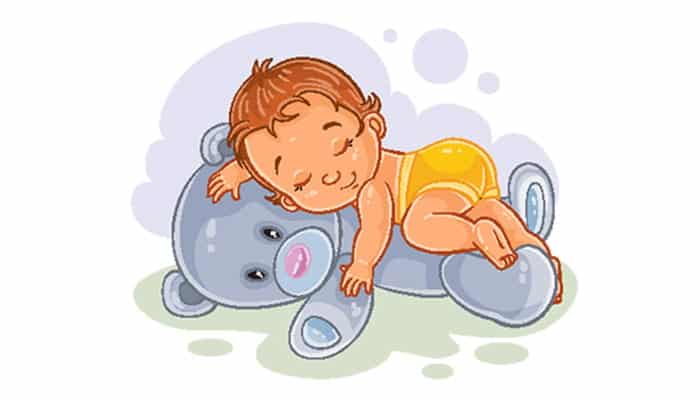
So you can also expect the child to show more affection toward toys and other living beings. Toddlers will start to hug, kiss and cuddle more and more, especially if they saw those behaviors from you as a parent. So don’t be afraid to show affection towards your partner or other people in front of your child, because they will learn from you that it is OK to hug someone. And better to hug than kick or bite, and we all know we have enough of those behaviors among toddlers.
So that would be all we prepared for this article and what happened in the fifteenth and sixteenth month in a nutshell. There are of course a lot more things, but hey, you are probably used to new, “exciting” things on a daily basis. So we hope you find something useful in this article or at least some solace in knowing that you are not alone in some, more challenging behaviors. So join us in two months when we will report on the seventeenth and eighteenth month of the child’s life.
If you’re searching for some great STEM Activities for Kids and Child development tips, you’re in the right place! Check the Categories below to find the right activity for you.

STEM Science
Videos, guides and explanations about STEM Science in a step-by-step way with materials you probably already have at your home. Find new Science ideas.
Read more
STEM Technology
Videos, guides and explanations about STEM Technology in a step-by-step way with materials you probably already have at your home. Find new Technology ideas.
Read more
STEM Engineering
Videos, guides and explanations about STEM Engineering in a step-by-step way with materials you probably already have at your home. New Engineering ideas!
Read more
STEM Math
Videos, guides and explanations about STEM Math in a step-by-step way with materials you probably already have at your home. Find new Mathematics ideas.
Read more
Psychology
Find out all about development psychology topics that you always wanted to know. Here are articles from child psychology and development psychology overall.
Read more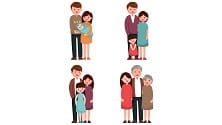
First year of Child’s Life
Following a Child’s development every month from its birth. Personal experiences and tips on how to cope with challenges that you will face in parenting.
Read more